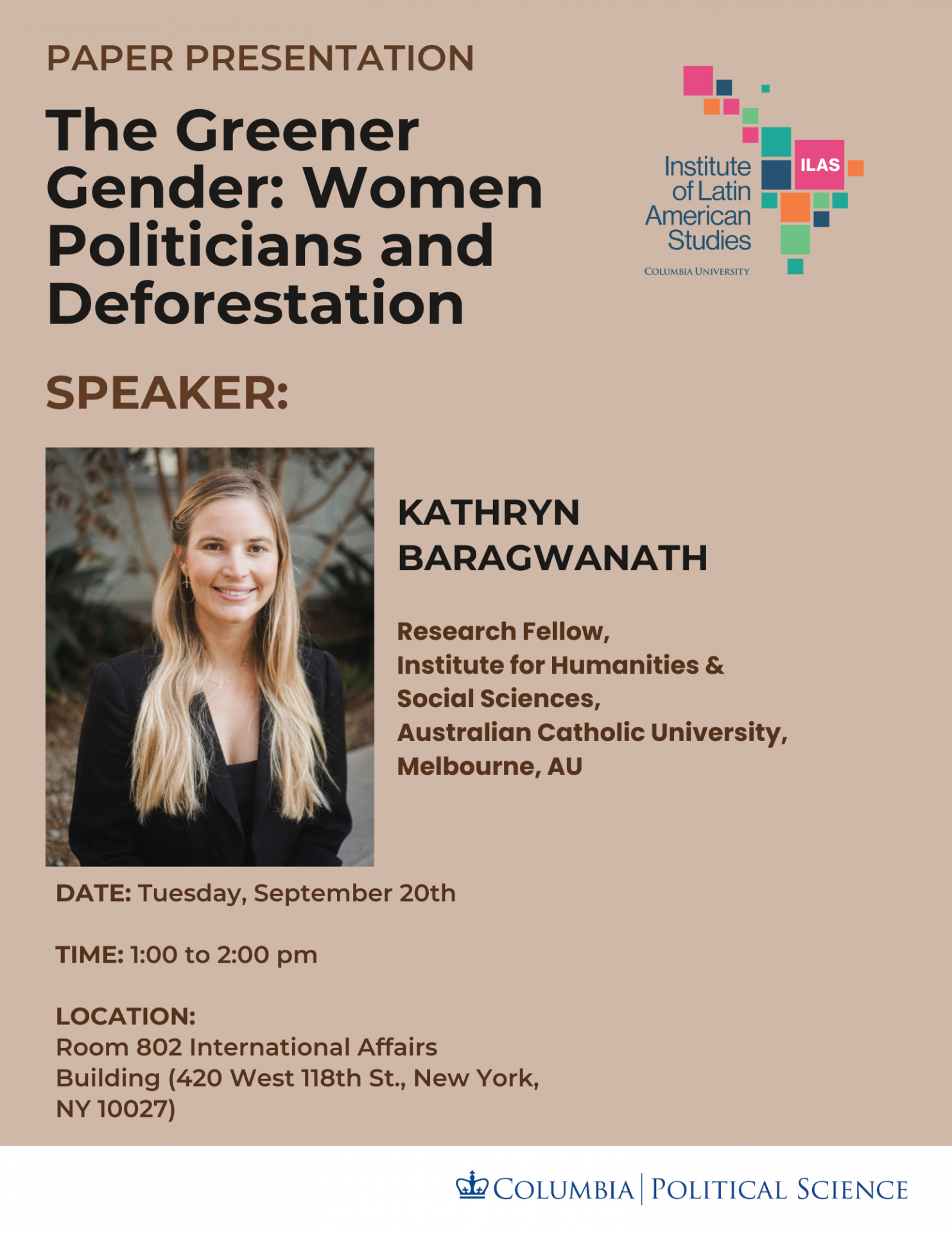Kathryn Baragwanath is a Research Fellow at the Institute for Humanities and Social Sciences at the Australian Catholic University, based in Melbourne. She received her PhD in political science from the University of California, San Diego in 2021. Her research focuses on the political economy of natural resources and environmental politics, with a focus on Latin America. She is originally from Chile, where she received her BA and Ms in Economics at PUC-Chile and worked as an anti-trust economist at the Fiscalia Nacional Economica before embarking on her PhD at UCSD.
Paper Abstract: Women have been shown to have different policy preferences, invest in different types of goods and be less corrupt than men when elected into political office. In this paper, we study the effects of electing a woman mayor into office in Brazil on rates of deforestation, the main source of carbon emissions in Brazil. We exploit a close election regression discontinuity design in order to establish causal findings. We find that electing a woman mayor leads to significantly lower deforestation rates during the woman's time in office. We propose that women's effect on reduced deforestation comes through two mechanisms: (i) women's distinct preferences towards climate change and (ii) a lower likelihood of being captured or corrupt. Although we can't fully differentiate between the mechanisms, we provide evidence that the capture mechanism is certainly at play. Women mayors are less corrupt than their male counterparts, receive less campaign funding, and are less likely to receive funding or have ties to the agricultural and mining sectors. Additionally, we study how women's actions lead to lower deforestation rates by looking at whether women mayors impose more environmental fines and embargoes (a sign of better monitoring and enforcement), whether they are also able to reduce the number of fires in their municipalities, and whether there are fewer instances of land related conflict inside their municipalities. Altogether, our findings strongly support the theory that women's representation reduces deforestation rates in the Brazilian Amazon, with evidence that lower likelihood of regulatory capture and corruption levels are driving these results, at least in part.

